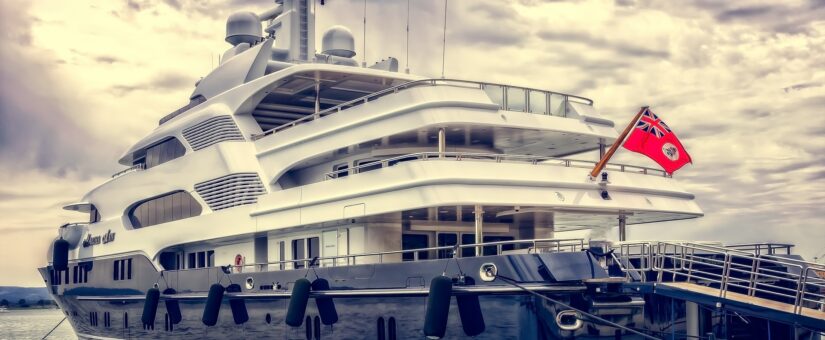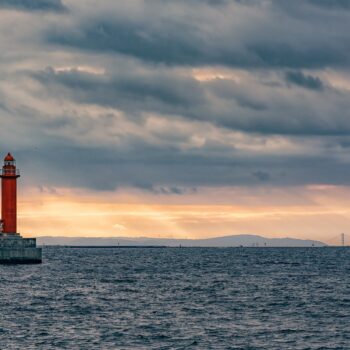
The Changing Dynamics of the Yachting Industry: Impact of Russian Sanctions
Before Russia’s attack on Ukraine, the pandemic played an important role in increasing yacht sales among the ultra-wealthy. As individuals sought greater privacy and isolation, yachts
provided a means to escape and enjoy exclusive experiences. The desire for seclusion and theability to control their environment contributed to the heightened demand for yachts among
this affluent demographic.After the pandemic, the ongoing conflict in Ukraine has led to the imposition of sanctions onRussia, which have had a notable effect on multiple industries, including the yachting sector. There have been numerous instances of yacht arrests, asset freezing, and removals from registries over the past year. The willingness to offer services to Russian individuals has
significantly diminished due to the legal constraints involved and the potential harm to one’s reputation associated with such engagements. Regulation of the EU 833/2014, already imposed restrictions on trade with Russia even prior to the recent military escalation. However, through the EU Council Regulation 2022/328 on February 25, 2022, the scope of these restrictive measures was significantly expanded. The following sections provide a comprehensive overview of the new measures, referring to the relevant articles of the revised Regulation 833/2014 and highlighting any changes from the previous legislation. Recently, the European Union implemented further sanctions against Russia on 24th February 2023. These sanctions not only build upon the previous measures but also broaden their scope. The question arising here is, what is the knock-on effect of the Russian sanctions on the yachting industry? A significant number of superyachts worldwide are owned by Russian Oligarchs. However, due to the imposed sanctions, these yachts are now prohibited from cruising in European waters. Moreover, there are restrictions on professional superyacht crews working on these vessels. In other words, being employed by a sanctioned entity conflicts with sanction laws means that many captains and crew members will need to return to their home countries. This is expected to result in a sudden surge of crew members entering the job market, which is already challenging in securing their employment status. Insurers, on the other hand, face a more intricate dilemma. It is highly likely that some yachts owned by sanctioned individuals have ongoing insurance claims. Due to the sanctions regulations, insurers are prohibited from making further payments on these claims and collecting additional premiums. Consequently, many of them are allocating financial reserves to handle the prolonged exposure to such claims. If the sanctions are eventually lifted, the contractual obligations of insurers would be reinstated. Illustratively, on March 4, 2022, the Italian police carried out the seizure of a yacht belonging to Alexey Mordashov, who is recognized as the wealthiest man in Russia. This action was taken in response to the circumstances surrounding the attack and the subsequent sanctions imposed on Russian individuals. In fact, the yacht named “Lady M”, valued at 65 million euros, was seized at the port of Imperia in northern Italy. The company that owns the yacht, Asmare Enterprises Limited, filed a request with the administrative court of the Lazio region to lift the freeze on the vessel. They argued that despite Mordashov being under sanctions, he was not
the legal owner of the yacht. The court rejected the lawsuit and affirmed that Alexey Mordashov was, in fact, the ultimate owner of the yacht Lady M. The court’s decision confirmed
Mordashov’s ownership despite the legal dispute raised by Asmare Enterprises Limited.
In addition, in judgment no. 8669 dated June 27, 2022, the second section of the TAR Lazio ruled in favor of the legitimacy of an administrative measure freezing a motor yacht, which
was believed to be linked to a sanctioned entity under EU Regulation no. 269/2014. The yacht’s owner appealed the measure on two grounds: The first ground of appeal argued a violation of procedural guarantees, including the obligation to notify the initiation of the procedure. However, the TAR ruled that such notification was not required as the freezing measures were preventive and aimed to prevent the transfer, disposition, and use of the affected economic resource. The second ground of appeal challenged the connection criteria between the listed entity and the frozen resource, as well as the use of open-source information as a basis for infringing upon fundamental rights. The TAR upheld the freezing measure, stating that open-source information could be used as a set of clues to infer the existence of the measure’s prerequisites when certain criteria are met. Subsequently, the TAR confirmed the legitimacy of the challenged measure, emphasizing that the notification requirement was not applicable and that open-source information could be legitimately used in the investigative process.
In conclusion, the EU has implemented regulations aimed at restricting trade with Russia in response to the war of aggression against Ukraine, the most recent one entered into force on 24
February 2023. These measures have had a significant impact on the superyacht industry, particularly on Russian-owned superyachts. Over the past year, there have been multiple
occurrences of yacht arrests, asset freezing, and removals from registries. These actions have affected various yachts, as legal measures have been taken to restrict their movements, freeze
associated assets, and remove them from official registries.
Avv. Lorenzo Macchi
Dott.ssa Niloofar Foroozanfar

- Posted by Lorenzo Macchi
- On 21 June 2023


